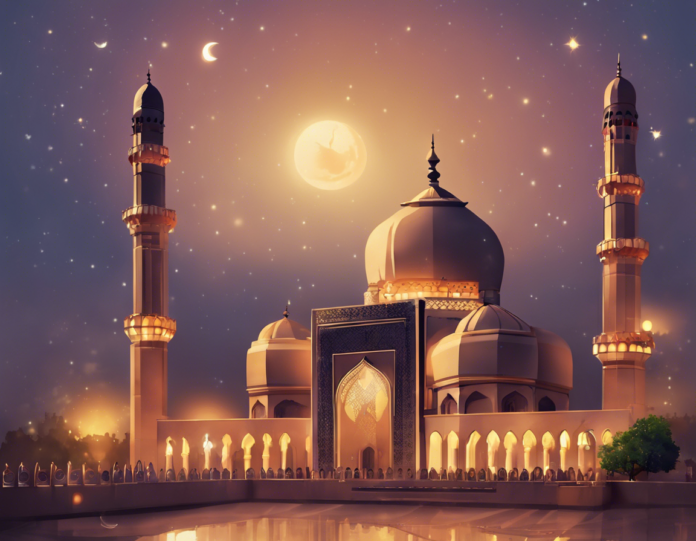Ramadan, the ninth month of the Islamic lunar calendar, is a sacred time for Muslims worldwide. During this month, Muslims around the world fast from dawn until sunset, refraining from food, drink, smoking, and sensual activities as a way to purify the soul, practice self-discipline, and empathize with those less fortunate. In 2024, Ramadan holds special significance in India as it marks the first observance of the holy month after several years. This article will delve into the significance of Ramadan, the traditions associated with it, and what makes the 2024 observance in India unique.
Significance of Ramadan:
Ramadan is considered the holiest month in Islam, as it is believed to be the month in which the Quran, the holy book of Islam, was revealed to the Prophet Muhammad. It is a time for spiritual reflection, increased devotion, and worship. Fasting during Ramadan is one of the Five Pillars of Islam and is obligatory for adult Muslims, except for those who are ill, elderly, pregnant, nursing, menstruating, or traveling.
Ramadan Traditions
- Suhoor and Iftar: Muslims partake in two main meals during Ramadan. Suhoor is the pre-dawn meal before the fast begins, and Iftar is the meal eaten after sunset to break the fast.
- Taraweeh Prayers: Special night prayers called Taraweeh are performed at mosques throughout the month.
- Charity (Zakat): Giving to those in need is a core tenet of Ramadan. Many Muslims choose to give their obligatory annual charity, known as Zakat, during this month.
Unique aspects of Ramadan 2024 in India
The observance of Ramadan in 2024 in India holds particular significance due to several reasons:
-
Cultural Diversity: India is a country known for its cultural diversity, and Ramadan is no exception. Each region in India has its own unique way of observing the holy month, creating a rich tapestry of traditions and practices.
-
Interfaith Harmony: In recent years, there has been a growing emphasis on interfaith harmony in India, with people from different religious backgrounds coming together to celebrate festivals. The observance of Ramadan in 2024 provides an opportunity for fostering unity and understanding among communities.
-
COVID-19 Impact: The year 2024 marks a significant time post the global pandemic, and the observance of Ramadan will likely reflect the challenges and resilience shown by the community during the tough times.
-
Social Media Influence: With the increasing use of social media platforms, the observance of Ramadan in 2024 is expected to be more interconnected and visible, with people sharing their experiences, recipes, and acts of kindness online.
Frequently Asked Questions (FAQs)
- What is the significance of the sighting of the moon for Ramadan?
-
The sighting of the new moon marks the beginning of Ramadan. It is traditionally done by scholars or local authorities to determine the start of the fasting month.
-
Can non-Muslims participate in Ramadan observances?
-
While non-Muslims are not required to fast during Ramadan, they are welcomed to participate in Iftar meals and learn about the significance of the holy month.
-
How long do Muslims fast during Ramadan?
-
Muslims fast from dawn (Fajr) until sunset (Maghrib) during the month of Ramadan, abstaining from food, drink, smoking, and physical intimacy.
-
What is Laylat al-Qadr?
-
Laylat al-Qadr, also known as the Night of Power, is considered the holiest night of the year in Islam. It is believed to be the night when the Quran was first revealed to the Prophet Muhammad.
-
What foods are traditionally eaten during Ramadan?
- Dates and water are typically consumed to break the fast, followed by a balanced meal that includes fruits, vegetables, proteins, and carbohydrates.
Ramadan 2024 in India offers a unique opportunity to celebrate unity, diversity, and resilience in the face of challenges. As Muslims come together to observe this sacred month, the spirit of Ramadan serves as a reminder of the values of compassion, charity, and spiritual reflection that are cherished by people of all faiths.


